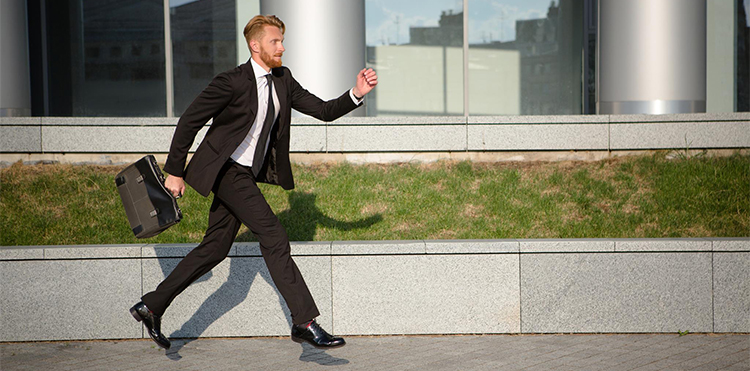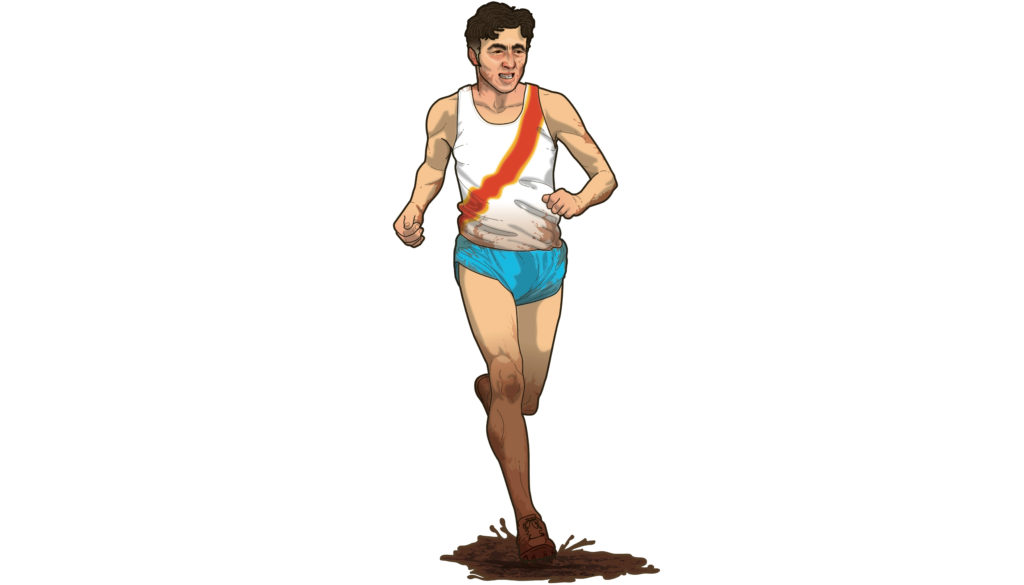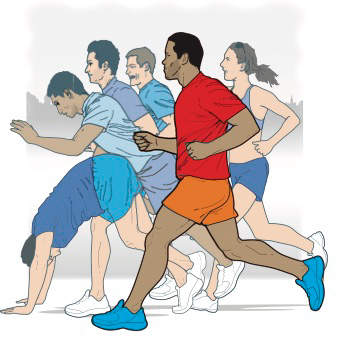While most of us consider the classic marathon distance of 26.2 miles to be a long way, to a hardened ultramarathon runner it’s just a training run.
While any event longer than 26.2 miles counts as an ultra, most are 30 miles or more, with some clocking in at well over the 100-mile mark. Running these distances is challenging, but ultra runners report a new level of the runner’s high endorphin hit that we all love, which, combined with the fulfilment of pushing yourself to the max, makes them return to ultras time and time again.
Anyone can do it
As daunting as it may sound, an ultra is by no means impossible for even the least experienced runner. Ultra marathon runner Chris Foreman, went from being a self-confessed couch potato who couldn’t even run for a bus, to running The Wall, a 69-mile course along Hadrian’s Wall.
This incredible leap is described in his new book Ultratortoise. “You don’t need to be young to run ultras,” he says. “You don’t need to be fast to run ultras, you don’t even need to have years of experience to run ultras – you just need to be made of steel.
Preparing the ground
No matter what you’re made of, you need to train well to run successful ultras.
The first thing you need to do is get a few marathons under your belt. “The more marathons you can do before attempting an ultra, the better,” says running coach and ultra distance runner Helen Taranowski, who was the 2012 World 50K champion. “The marathon gives you an insight into what is required physiologically and psychologically for long distance running.
“There is a lot of difference between 26 and 35 miles and you need to have experienced the marathon a few times to really know whether you can (or want to) run for longer. I would say you need to run at least three marathons before doing an ultra.”
Getting the miles in
In the 1980s, top long distance runners shared their training tips in a series of booklets that have just been reissued in one volume, Training for Ultra Running. One of the featured runners is Stephen Moore, multiple winner of the London to Brighton road race. “The first step is to get the race date in your diary, preferably 12 months ahead,” he advises.
“The second step is to plan a training programme, building up both your long training run and weekly mileage, while restricting increases to a maximum
of 10 per cent per week. The third step is to insert into the plan a series of races – 10K, 10-mile and half-marathon distances for speed, and a few marathons for stamina.”
Moore also encourages beginners to ensure their training is pleasurable. “Ultra training should be relaxed and rewarding. Quiet lanes, towpaths, trails and long days in the hills can be ideal,” he says.
Mental toughness
Ultra champion Moire O’Sullivan spent many of her first ultras battling with herself. In her book Mud, Sweat and Tears she recalls a negative inner voice that repeatedly bullied her and encouraged her to give up. One of the ways she eventually triumphed and became the first runner to complete the Wicklow Round (a 100K race up and down 26 mountains!) in under 24 hours, was by toughening up mentally. Most ultra runners agree that this is the secret to going those gruelling distances.
“It is largely psychological,” says Taranowski. “You can prepare physically for the challenge without too much difficulty, but you have to learn to overcome your brain’s desire to make you stop. Ultra running is not easy, it’s going to hurt physically, you are going to feel extreme fatigue and you have to be able to override that and keep pushing on. ”
How you toughen up mentally is a personal journey – everyone is different. It’s about mastering your mind and harnessing your willpower, perhaps via regular meditation – or simply learning to ignore a negative inner voice.
Start off slow
Reaching ultra level takes time and patience and is best done gradually, advises Taranowski. “When I started running I couldn’t even run a mile and couldn’t imagine ever running the distances I now do,” she admits.
Once you have built up to marathon level and done at least three of those, she advises working up to a 30-mile ultra, ensuring it is one that doesn’t require map-reading skills. “I would recommend a marked route for your first ultra event,” she says. “The last thing you want is to get lost and end up having to do extra miles to get back on course.”
Once you’ve completed a few shorter ultras, you can pick up some navigation skills and go for an even longer distance, such as 40 or 50 miles, on one of the scenic off-road courses.
Over time, you will change. Your mind will be more resilient and your body will become leaner and lighter, but most of all you will be surprised by your performance. Echoing what all ultra runners say about their move from marathons to longer distances, Taranowski says: “I have learnt that my body is capable of much more than I ever thought it was.”
Words: Hazel Sillver







